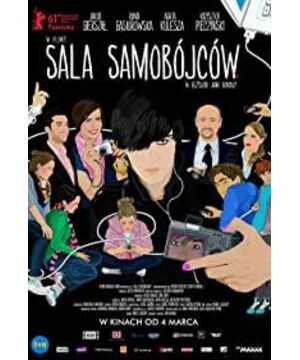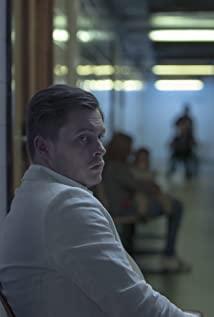The music accompanies the film—the first act is the slow, powerful bass in the theater, with the rigor and solemnity of a chant at Mass, as if to imply that the atmosphere of the whole film is murky. On the second floor stand, the protagonist's family of three sat upright, seemingly listening intently. The camera zooms in, and with the abrupt end of the singing, the picture cuts to the work of the homeowner, and then there is a mosquito that fades in and crescendos, and brings the audience back to the theater, and so on and so forth until the introduction is over, and at the same time, the performance is over. Yes, everyone stood up and applauded. When the applause fell, the first episode "roman" included in the OST was closely connected, and a certain image in the movie was subtly instilled a certain connection. When the protagonists talked, the music naturally weakened, and then the second tune played quietly, not intense but kept in the constantly switching shots. This song "grass so" "Bright" itself is also a strong prelude and a weak main body. Later, if there is no humming, it is the icing on the cake, filling the gaps in the words of the protagonists in the film when they move and communicate with each other. After briefly summarizing the surrounding environment of the protagonist and laying a dark foreshadowing, the film finally returned to the procrastination main line from the rambling narrative after more than ten minutes. The bar has a natural background sound - human voice. But in this case, the long tail of the old woman was put in, pretending to be lazy, incompatible and integrated with the noisy environment. Later, when the protagonist was kissing, the alarm bell sounded abruptly, ending the aftertaste of the previous song, and suddenly it turned into a bright and brisk minor tune for a girl. Even though the lens is constantly changing, it has not diminished in the slightest. Until the turning point of the whole show in the true sense, after the protagonist is behind bars, the tone becomes obscure and gloomy, and this joyful song never appears again. And the piercing and sharp alarm bells that were confusing at the beginning also seemed to have the meaning of forward-looking prophecy in it. I won't go into details about the subsequent use of music here. It's not that there are no new highlights in the later ones, but because there are only 20 episodes in the OST, I really can't be rigorous enough to compare them one by one. It is worth mentioning that a Japanese song was used unexpectedly in the film, after all, it was a Polish director. But that Japanese song aptly served as the background music for the interaction between the hero and heroine. In a trance, there is a feeling of endless entanglement between life and death in Japanese dramas. The film ends with the death of the male protagonist, and in the last scene, it is also a theater, but the original husband and wife are sitting at opposite ends of each other, and there is no performance in the stands. As the piano sound stopped, the whole play ended here. I'm not trying to unrealistically promote what a philosophically trendy movie this is, but the use of the soundtrack is impeccably perfect.
View more about Suicide Room reviews











